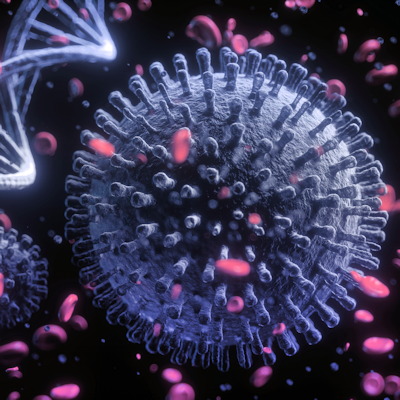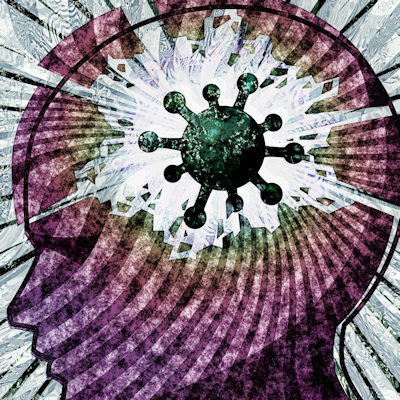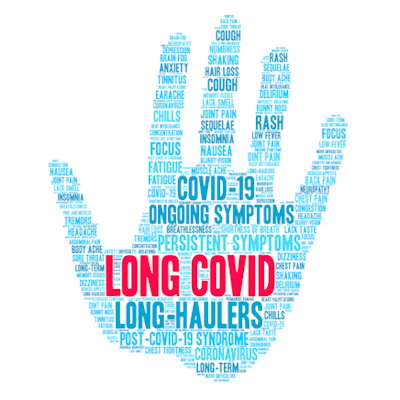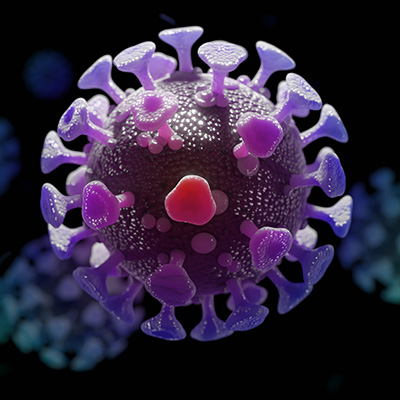May 10, 2023 -- Patients with persistent neurological symptoms after SARS-CoV-2 infections were intensively studied and found to have autonomic dysfunction and differences in their immune cell profiles. The findings, published last Friday in Neurology: Neuroimmunology & Neuroinflammation, may help explain lingering long-COVID neurological symptoms, and lead to better diagnoses and treatments.
Most people who develop COVID-19 fully recover, but approximately 10% to 20% of people experience a variety of long-term effects after their initial illness. Although, there is no universal definition for these lingering symptoms, the Centers for Disease Control and Prevention (CDC) describes long COVID as a wide range of new, returning, or ongoing health problems that people may experience four or more weeks after first being infected with SARS-CoV-2.
People with post-acute sequelae of SARS CoV-2 infection, a subset of long COVID, experience symptoms including fatigue, shortness of breath, fever, headaches, sleep disturbances, and "brain fog," or cognitive impairment. Fatigue and cognitive difficulties, likely stemming from nervous system dysfunction, are among the most common and debilitating symptoms.
Researchers used an approach called deep phenotyping to closely examine the clinical and biological features of long COVID in 12 people with long-lasting, disabling neurological symptoms after COVID-19. Of the participants, 83% were female, with a mean age of 45. The median time of evaluation was nine months after COVID-19 (with a range of three to 12 months). Although 92% had only a mild initial infection, 83% had developed a disabling disease.
Participants underwent comprehensive testing at the National Institutes of Health (NIH) Clinical Center, a hospital dedicated solely to clinical research. The research was part of an observational study taking place at the NIH Clinical Center designed to characterize changes in the brain and nervous system after COVID-19. The testing included a clinical exam, questionnaires, advanced brain imaging, blood and cerebrospinal fluid tests, and autonomic function tests.
The results showed that, compared to healthy controls, people with long COVID had lower levels of CD4+ and CD8+ T cells -- immune cells involved in coordinating the immune system's response to viruses. Researchers also found increased numbers of B cells and other types of immune cells, suggesting that immune dysregulation may play a role in mediating long COVID.
People with long COVID also had problems with their autonomic nervous system, which controls unconscious body functions such as breathing, heart rate, and blood pressure. Autonomic testing showed abnormalities in vascular tone control, heart rate, and blood pressure with changes in posture.
The researchers say their results call for further evaluation to confirm these changes and explore immunomodulatory treatments in the context of clinical trials. However, they believe their findings add to growing evidence that widespread immunological and autonomic nervous system changes may contribute to long COVID. They hope their results will better characterize this debilitating condition and facilitate the development of potential therapeutic strategies.
Copyright © 2023 scienceboard.net














